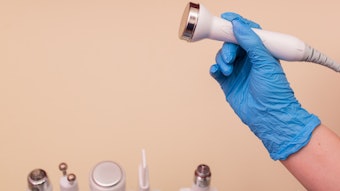
Aside from impulse buys or necessary purchases, sales typically take place over a period of time and through a series of steps. The majority of clients are cost-conscious, especially during the current economic climate. They look for value before they make significant purchases. During the first meeting with potential skin care clients, find out what they want and what results they are seeking, and then make recommendations for their skin care goals based on your assessments during the first appointment. It is important not to bombard clients—especially first-time clients—with too much all at once. Keep a record of your assessment of their skin, what concerns they discussed with you and their comments after their treatment. This information will be very important when it comes to following up.
Follow up with your clients to encourage them and remind them to comply with their goals. This practice demonstrates your determination to build relationships with them, and most significant sales are the end-result of a relationship. Your best clients stay with you due to consistent follow up. Following are some reasons skin care professionals may be hesitant to follow up.
1. You don’t want to seem pushy. It may be true that following up too frequently will come across as being pushy. However, very few people ever come close to crossing this line. A weekly call is more than enough to keep in touch, providing you make sure the call is short and to the point. Don’t waste your client’s time by droning on and on. Also, if possible, provide some additional value by offering tips during your follow-up call.
2. You forget. It’s easy to forget considering how busy you are. You may have every intention of calling your client, but you get caught up in your business. This is a common dilemma, but one that can be avoided by treating the follow up like a scheduled appointment. Keep an appointment book just for your follow-up calls or e-mails. After a client’s treatment, schedule in a follow-up time along with notes about their treatment and skin concerns to be sure you don’t forget to call, and remember what to discuss with them when you do.
3. You make false assumptions. When someone doesn’t immediately return your phone call or e-mail message, you may assume the worst, even if this assumption is not verified. A lack of response can often be attributed to the fact that the other person is just too busy to respond or does not have an answer for you. It does not mean that they are not interested in your products and services. Continue to try and make contact with your client in a timely fashion.
4. You have never been educated. Many people have never received formal sales training, and have not learned why they should follow up and how to make it happen. This is relatively easy to remedy: Ask for help, take a sales and business course or read a sales book. There are so many great resources available to boost your confidence, because to be a profitable skin care professional, you must also be a confident sales person.
Follow up should always occur after the sale is completed. A quick telephone call after your product or service has been delivered confirms their decision to buy from you. Make an effort to send clients a handwritten thank-you card after their initial visit. Here’s the bottom line: You can easily differentiate yourself from your competition by making the effort to follow up with your prospects and clients. Don’t take for granted that they will call you, because chances are, without following up, they won’t. Be proactive to keep your clients happy for the next sale. It is important to remember that even after you’ve closed a sale or finished a treatment, following up keeps the sales process going and the money coming in.
Lyn Ross, president of the Institut’ DERMed Spa Enterprise, is licensed by the Georgia Board of Cosmetology as a master esthetician and esthetic instructor with more than 25 years of experience in the field of professional skin care. In 1994, Ross created the Institut’ DERMed Cosmeceutical product line and founded the Institut’ DERMed College of Advanced Aesthetics. She also writes articles on skin health and contributes regularly to trade publications, as well as textbooks.










